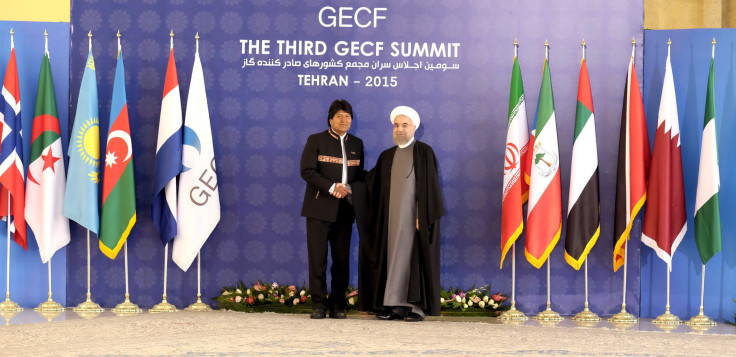Iran Supreme Leader Ayatollah Khamenei Hails Bolivia For Resisting US Bullying

Iran’s Supreme Leader Ayatollah Seyyed Ali Khamenei hailed Bolivia’s resistance against the policies of the United States.
In a meeting with Bolivian President Evo Morales Tuesday, Khamenei said Washington was trying to change the identity of young people in South America and other parts of the world. He said such policies must be “resisted by strengthening wills and enhancing communications and cooperation.”
“Iran was the first country in the world to fully break loose from America’s dominance owing to the popular and independent movement [that was led] by [the late] Imam Khomeini, and stood against hostilities of the Eastern and Western empires as well as different forms of their military, security and economic pressures,” Khamenei’s official website quoted him as saying.
He said, for the same reasons, Iran would support any country against “bullying and hegemony.”
The Bolivian president, on his part, said his country did not need permission from the U.S. to decide if it should have relations with the Islamic republic. He stressed that Bolivia put an end to Western aggression by nationalizing its oil industry.
“Today, Bolivia’s gross national product (GNP) has exceeded billion, which compared with the period of dependence, has quadrupled,” Morales said.
Khamenei too noted the South American country’s progress after it had obtained complete economic and political independence.
The Iranian leader earlier warned Russia against Washington’s Middle East plans. He told Russian President Vladimir Putin America was following “dishonest diplomacy” by supporting terrorists in Syria.
Before the meeting, Morales and Iranian President Hassan Rouhani expressed their readiness to develop and promote technological, scientific and economic cooperation. Prensa Latina reported the leaders referred to joint projects between Iran and Bolivia in the fields of water treatment, agriculture, medical science, nanotechnology, energy and oil.
© Copyright IBTimes 2025. All rights reserved.





















